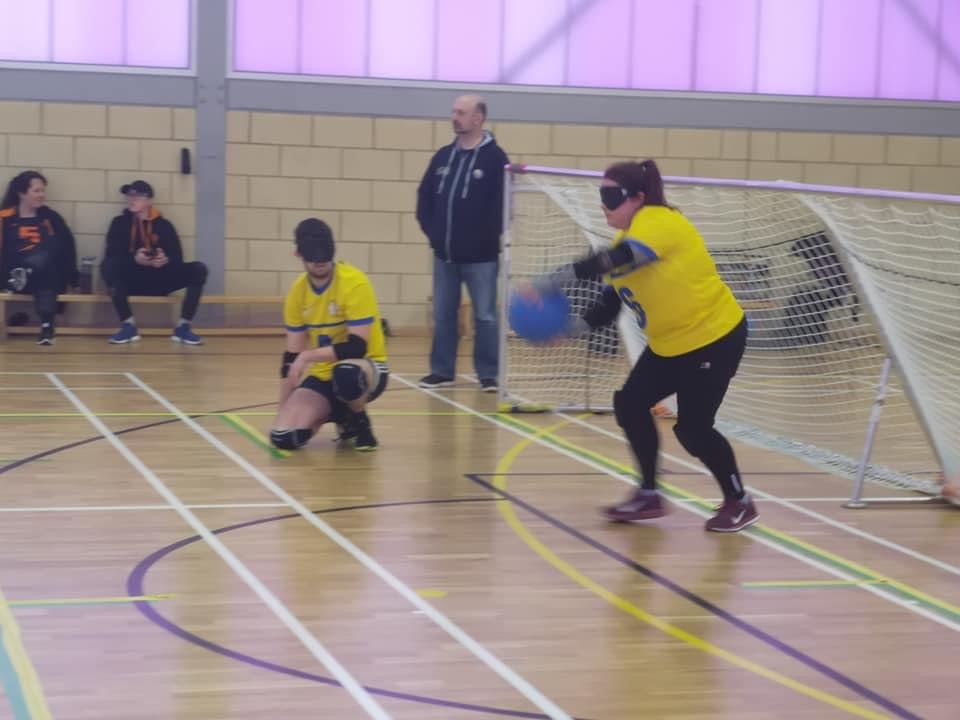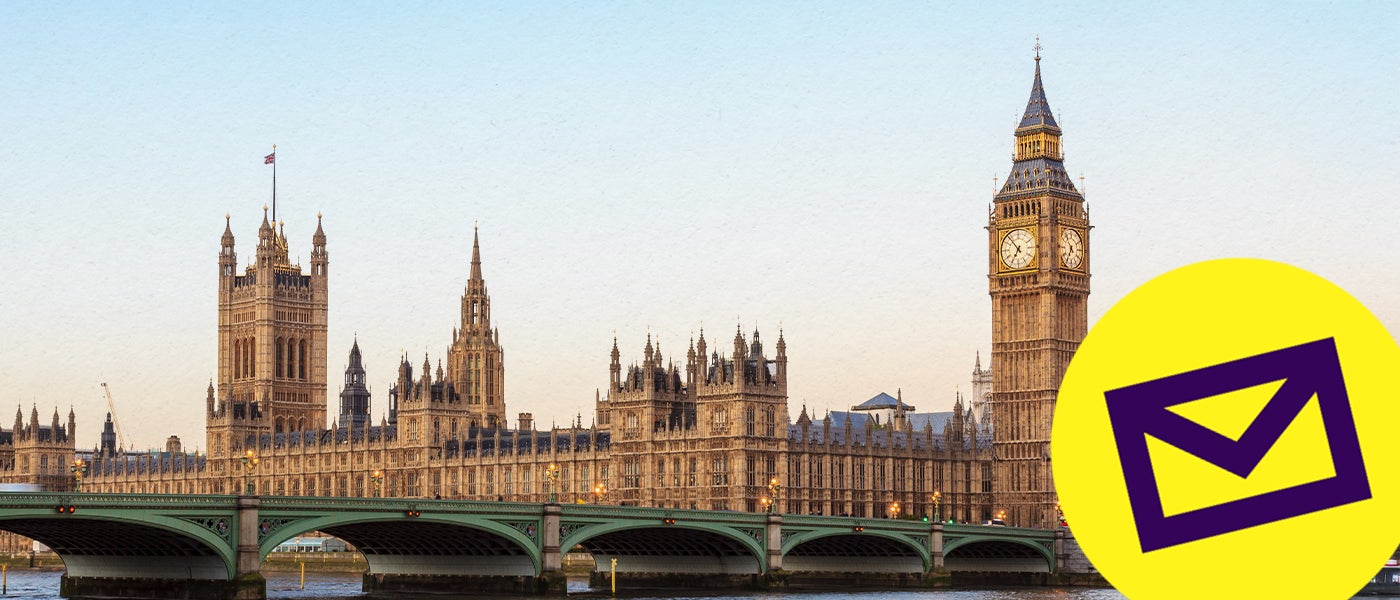- Home
- News and stories
- "I wish I'd started playing Goalball sooner"
"I wish I'd started playing Goalball sooner"
 2 September 2021
2 September 2021
As well as being a Scope helpline advisor, Jade is a keen Goalball player. Here Jade, 27, from Leeds, tells us more about how she got involved in the sport.
What is Goalball?
Paralympic sport Goalball is a fast paced, action packed, 3 a side indoor game of attack and defence, designed for people who are blind and partially sighted. It can also be played by people who don’t have a VI (visual impairment).
The non-invasive game is played with an audible ball which has bells inside it, on a tactile court with all players wearing blackout eyeshades.
The aim of game is to throw the ball along the floor into the opposition’s goal, while defending your own goal. The team with the most goals win.
How did you get involved in Goalball?
It was through a friend who’d been pushing me for years to get involved. She said to come along and try it, and I’ve never looked back since.
I thought I didn’t want to be involved in this “blind sport”. I wanted to play “normal” sport, I didn’t want to play this sport that’s associated with my disability. Now I really wish I’d got involved sooner.
When you’re in primary school, you try and be that person that’s not disabled, especially if you’re the only one that is.
I was the only VI (visually impaired) person in my school until secondary school. All my friends at that point were fully sighted.
Goalball is such an inclusive sport and you can play at different levels.
You can play for fun, you can play elite, anyone who doesn’t have a visual impairment can play. A lot of disability sport you have to have a disability to compete.
If there’s a family that have 2 kids – one with VI and one without – everyone can play on an equal playing field. I think that’s my favourite thing about it – it’s inclusive.
I wish they did these kinds of sports more in schools. I wish I’d been able to do it at my school because I would have loved it at that point.
How did the lockdown affect the team?
We weren’t able to train, and I missed it so much, not just for enjoyment but also for exercise. Goalball is such a workout. In a 3-hour session I’d use my day’s allocation of calories.
Through lockdown we really struggled, we couldn’t play at a lot of venues as they wouldn’t allow us to go in. Even when restrictions allowed disability sports, they wouldn’t allow us to hire halls out.
Our first training session back will be in a couple of weeks’ time. We’re all going to be very rubbish!
What role can the Paralympics have?
The Paralympics has always been something I’ve looked up to, and thought I’m so glad that something like this exists and that people with disabilities are able to compete at that level.
I’ve seen things about Paralympians being described as ‘superhuman’, and that’s not how it is for me. At the end of the day anybody with a disability is just a normal person.
I hope the Paralympics can show people the sports that are available.
It’s not always easy to start doing a sport. I was so nervous when I first went to Goalball, now I go to every training session I can go to.
I hope it encourages people and makes people aware that there are sports out there that are accessible.
What barriers are there for disabled people who want to get active?
Not having opportunities in the local area is a big barrier. Although there are lots of disability-friendly clubs, they’re not always in the area you need them to be. Not having the ability to travel to and from those areas with ease is really one of the biggest barriers I face myself. Some of the sessions aren’t at times you can go.
I used to do a lot of horse riding but it’s an expensive sport. There are a few Riding For The Disabled places in Leeds, but I couldn’t really get there without getting a taxi.
However I also do tandem cycling, where I get the train and don’t have to pay for anything. It’s the same with Goalball. I get the bus into Leeds and we all travel there together.
I’d love to be able to go to a gym, but none of the ones near me are accessible.
Will seeing inclusive and disability sport represented more have an impact on attitudes generally?
I think so. Attitudes towards disabled people are often ‘they’re disabled, they can’t do that’. If someone says that to me, I go the other way!
Hopefully it’ll show the general public that it doesn’t matter if you’ve got a disability, you can still do things that everyone else can do, but might do them in a different way or have an adaptation.
 2 September 2021
2 September 2021







